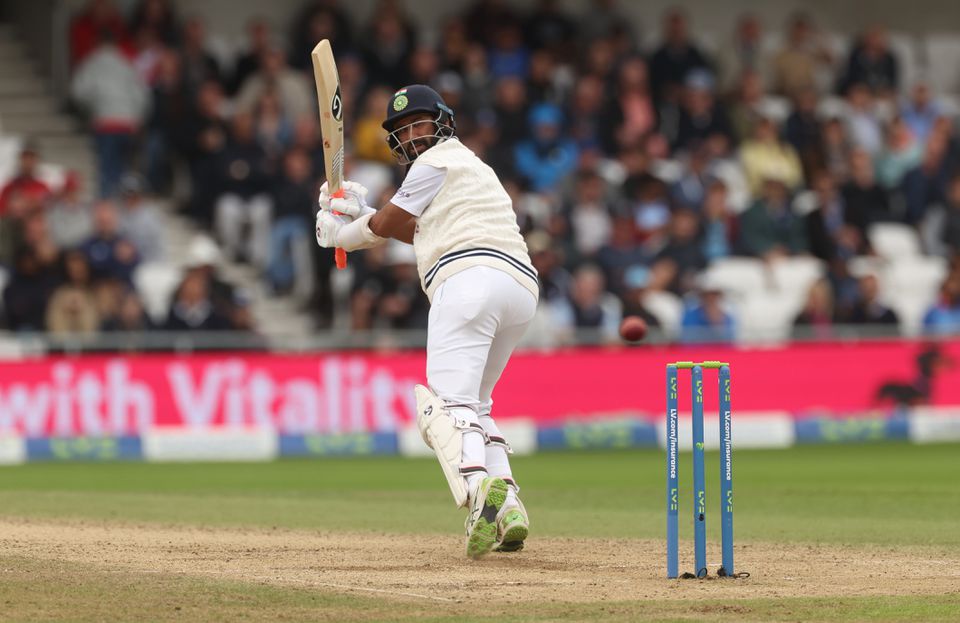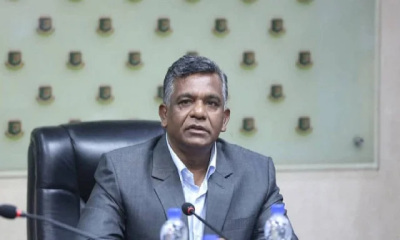England's push for victory in the third Test was met by stubborn resistance from India on day three at Headingley.
Needing 354 to make England bat again, India rebounded from being bowled out for 78 in the first innings by working to 215-2.
They were led by Cheteshwar Pujara's stoic 91 not out, while Rohit Sharma made a stylish 59.
After their second-wicket stand of 82 was ended, captain Virat Kohli looked in good order for his unbeaten 45.
England, who lost their last two wickets for nine runs in the morning to be dismissed for 432, largely bowled well without rewards.
Ollie Robinson and Craig Overton were particularly impressive on an unresponsive pitch, claiming a wicket apiece.
While England are not yet in serious danger of being on the wrong end of another famous Headingley comeback, they are being made to battle hard to level the series at 1-1.
While this storied ground has given England some of their most remarkable victories - Ian Botham in 1981 and Ben Stokes in 2019 - it has also dished out its share of unlikely defeats. Sri Lanka in 2014 and West Indies in 2017 both won from pretty hopeless positions.
India joining those ranks still seems highly fanciful, especially when it is considered that no team has ever overturned such a large first-innings deficit to win a Test.
However, the fight they have shown - a complete contrast to the soft way their batting folded on Wednesday - has at least added intrigue to a weekend that might not otherwise have seen any play.
The action on Friday was slower than the opening two days, but it was no less intriguing. Rarely did it feel like the India batsmen had control of the threat posed by England's attack.
There were also some bizarre moments. A plane flew overhead trailing a banner saying 'Sack the ECB and save Test cricket', while pitch invader 'Jarvo', who appeared during the second Test Lord's, made another idiotic entry to the field, this time padded up.
There was also the charade of England having to bowl their spinners in the late gloom, allowing India to score more freely than at any other point, only for play to be called off four overs early when Joe Root wanted his pace bowlers to take the new ball.




-20260225072312.webp)

-20260224075258.webp)

-20260217073221.webp)





-20260226080139.webp)
















-20260219054530.webp)





-20260221022827.webp)